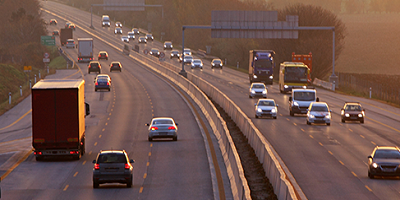How to check your car has tax

It’s a legal obligation to have up to date vehicle tax even if you do not have to pay anything. The DVLA check all registered vehicles each month on their databases for untaxed vehicles.
If your vehicle isn't taxed then as the registered owner you will receive a Late Licencing Penalty (LLP) letter which will state the penalty amount.
If you are caught driving without car tax then an out of court settlement letter (OCS) will be sent again detailing the amount that is payable. If these aren’t paid then a larger fine could be issued, your car could be clamped or even crushed and your details passed onto a debt collection agency.
To try and avoid the above happening to you, we have listed ways to check if your vehicle has tax.
Online car tax checker
If you have access to the internet then a government website offers a free online checking service which will advise if your car is currently taxed. To visit the website use this link https://www.gov.uk/check-vehicle-tax and follow the on-screen instructions, these will guide you through the process to check your tax. You will need your car registration to hand as this is asked for during the checking procedure.
Look out for reminders if you pay annually
If you pay for your car tax annually rather than by Direct Debit, you’ll usually be sent a reminder in the post which is known as a V11. This will give you the date that your car tax runs out along with details of how to renew. If you forget to pay, you will receive a late licensing penalty letter automatically, if the penalty is not paid the case will be referred to a debt collection agency.
Check your bank account or card statements
If you pay your car tax by Direct Debit or debit/credit cards then you could refer to your old statements which should show the dates you have previously paid. If you opt to pay monthly by Direct Debit, then you should see the instalments come out of your account each month. Your Direct Debit should renew automatically when the current year’s tax is due to run out, so, if you don’t miss any payments, this means your tax will continue without you needing to take any action. Do however bear in mind that if you pay via Direct Debit and the funds are not available on the date they are due, this is classed as a missed payment and may result in the vehicle not having valid tax. If you pay by Direct Debit and fail to make the payment, DVLA may stop you from using this payment method in the future.
Buying a car
When buying a car, you must notify DVLA of a change of keeper and tax the vehicle in your name before driving it away. If you’re buying the car from a dealership they may well sort this out for you, but if not, you’ll need to do this yourself using the V5C/2 new keeper supplement. For more information on how to do this you can visit https://www.gov.uk/vehicle-tax. You can now notify DVLA of a change of keeper online visit: https://www.gov.uk/sold-bought-vehicle.
When don’t you have to pay car tax?
You will always need to tax your vehicle but you may not always have to pay anything. If you fall into one of the categories below be sure to check out the DVLA website:
- If a car is declared off the road via a Statutory Off Road Notification (SORN)
- Disabled passenger vehicles and vehicles used by a disabled person – follow this link to see if you are eligible
- Historic Vehicles made before 1st January 1983 – follow this link to check eligibility
- Electric vehicles with the power coming from:
- An external source such as a private or public ChargePoint
- An electric storage battery not connected to any source of power when the vehicle is moving
- Hydrogen fuel cells
- You must however pay vehicle tax if your vehicle is hybrid electric
We hope this guide has helped you understand a bit more about vehicle tax and how to stay within the law. While you’re checking your vehicle tax, it might be a good idea to check your car insurance and MOT are also still valid if you think they renew at a similar time.
References:
https://www.gov.uk/
https://www.gov.uk/government/publications/vehicle-enforcement-policy/dvla-enforcement-of-vehicle-tax-registration-and-insurance-offences
You might also be interested in
Understanding your car cover and when it applies
Check out our video for top car cover tips.
FCA changes to insurance and how they may affect your premium
The Financial Conduct Authority (FCA) – an insurance industry regulator – recently introduced new regulation to insurance pricing to take effect on 1 January 2022.

